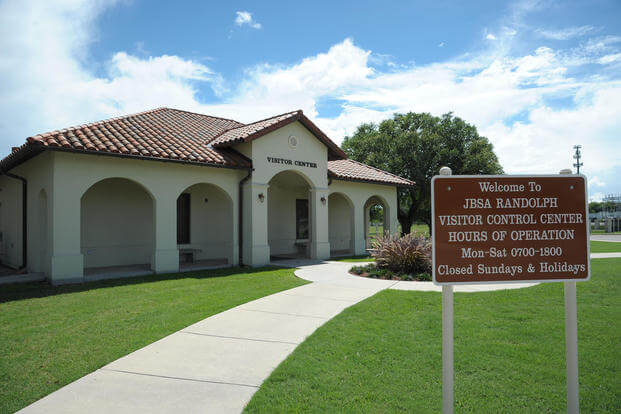A bacteria that can cause pneumonia is still being detected in the medical barracks at Joint Base San Antonio, Texas, despite weeks of efforts to sanitize the area.
In late September, base officials said that 150 residents and staff at Liberty Barracks, where service members who are patients at the nearby medical center are housed, were being moved to other parts of the installation after Legionella bacteria was discovered during routine water testing.
The building has since been treated with a "super-chlorination process," Rob Strain, a spokesman for the base, told Military.com last month. But subsequent testing after the procedure showed the bacteria may still be present.
Read Next: Air Force and Space Force Are Offering One-Day Passes for Troops to Get COVID-19 Boosters
"We received the results from the follow-up testing of faucets in Liberty Barracks: Four of the tests came back positive," Strain told Military.com. "We're evaluating options for the way forward, but … residents and staff will not move back into the barracks until leadership is satisfied there is no risk to our people."
The barracks, a 216,000-square-foot facility capable of housing nearly 400 patients, opened in 2012, designed to provide a place to stay for service members while they receive treatment at the base's medical facilities.
Those residents may also be especially susceptible to catching Legionnaires' disease, a severe type of pneumonia caused by coming into contact with Legionella bacteria, since they are already undergoing medical care. The bacteria spreads through microscopic droplets of water and can be transmitted through drinking water, swimming pools and cooling towers in air conditioning systems, according to the Mayo Clinic.
Those who smoke, are 50 years or older, or have weakened immune systems are most susceptible to the illness. Strain told Military.com there have been no known cases of Legionnaires' disease or other Legionella-based infections among residents or staff at Liberty Barracks.
Another service member, who was not a resident at Liberty Barracks, was examined for possible exposure to the bacteria, he added.
"One service member, who was not a resident or staff member at Liberty Barracks, presented at a JBSA clinic with concerns about exposure to Legionella," Strain told Miltary.com. "Brooke Army Medical Center staff evaluated the service member; however, the service member did not meet the criteria for a confirmed or possible case of Legionella."
Strain said it's not yet clear what steps the base will take next to address the problem. They could include removing certain pipes or going through another round of super-chlorination in hopes of eliminating the bacteria.
Discovery of Legionella at Joint Base San Antonio is the latest housing and contamination incident among the services.
Last month, the Navy said water from the aircraft carrier USS Abraham Lincoln's bilges, a type of drainage system, leaked runoff into drinking water on the ship and was responsible for the "odor and cloudy appearance" that sailors observed last month.
Additionally, in late September, the Navy told Military.com that 10 sailors had health issues that might be related to a fuel leak that contaminated water aboard the aircraft carrier USS Nimitz.
In August, service members stationed at Kunsan Air Base, South Korea, began posting dozens of pictures online showing widespread moldy patches in hallways and images of thermostats reading anywhere from 87 to 90 degrees due to broken air conditioning. Base officials created a task force in September to address the issues.
Also in August, the Army announced that more than 1,700 soldiers at Fort Bragg, North Carolina, would be evacuated after an inspection found 12 buildings were unlivable due to mold and air conditioning issues. The relocation effort was completed recently, the base said.
This is not the first time Liberty Barracks has detected Legionella. Last year, the building was evacuated after the bacteria was found in the building's plumbing, according to a press release.
-- Thomas Novelly can be reached at thomas.novelly@military.com. Follow him on Twitter @TomNovelly.
Related: Medical Barracks at Joint Base San Antonio Still Being Treated a Month After Legionella Discovery










